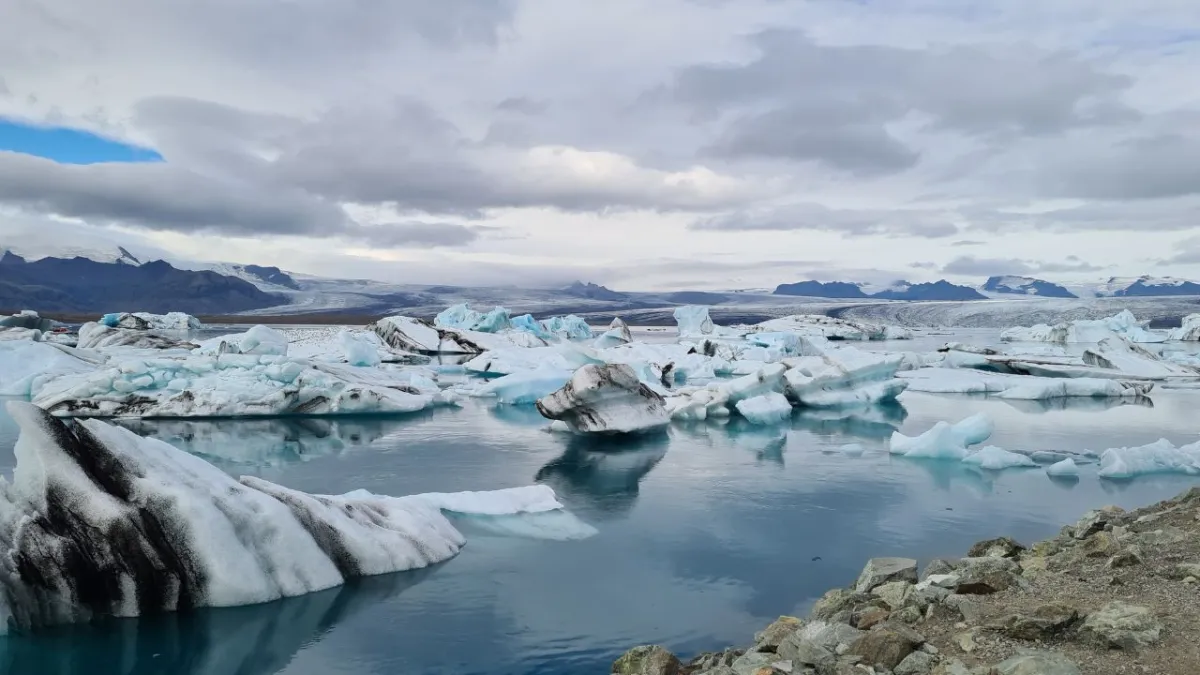
The Arctic is the region surrounding the Earth’s North Pole. It includes parts of several countries such as Russia, the United States (Alaska), Canada, Denmark (Greenland), Iceland, Norway, Sweden, and Finland. This area is characterized by its extremely cold climate and its landscape covered in ice and snow for much of the year.
However, new research from the journal Nature Communications revealed the acceleration of thaw periods in this region. An ice-free Arctic, as scientists have warned for decades, could significantly affect the Earth’s ecosystem and climate by changing weather patterns.
Pixabay
(You may be interested in: This is what the world’s first cloned arctic wolf looks like)
In what year will the Arctic run out of ice?
The Arctic is not a continent like Antarctica, but is primarily an ocean (the Arctic Ocean) covered in ice, surrounded by lands that are mostly devoid of trees and have frozen subsoil. The image of the Arctic completely free of sea ice in summer could occur sooner than expected: in 2027, according to research in the scientific journal.
This region is home to rich biodiversity, including organisms that live in ice, fish, marine mammals, birds and some human communities that have adapted to extreme conditions.
The international team of researchers led by climatologists Alexandra Jahn (University of Colorado Boulder) and Céline Heuzé (University of Gothenburg in Sweden), has used computer models to predict when the first day without ice could occur in the northernmost ocean and they came up with that worrying result.
The thaw would show that the ecosystem was altered
“The first day without ice in the Arctic will not change things radically, but it will demonstrate that we have altered one of the defining characteristics of the Arctic’s natural environment due to greenhouse gas emissions,” Alexandra Jahn says in a statement.

Pixabay
To conclude that the Arctic will be ice-free within three years, The researchers projected the first ice-free day using the results of more than 300 computer simulations. They found that most models predicted that the first day without ice could occur between nine and twenty years after 2023, regardless of how greenhouse gas emissions evolve.
This phenomenon is driven by global warming
But the authors have seen that there are a series of extreme weather events that could melt two million square kilometers or more sea ice in a short period of time: an unusually warm autumn weakens sea ice first, followed by a warm winter and spring in the Arctic that prevent the formation of sea ice.
When the Arctic experiences such extreme warming for three or more years in a row, The first day without ice could occur in late summer. Based on these latter variables, nine simulations suggested that an ice-free day could occur within three years, or at most within six.
There is still hope for the Arctic
However, the researchers warn that all is not lost and that in their models have seen that a drastic reduction in emissions could delay the disappearance of ice in the Arctic and reduce the time the ocean remains ice-free. “Any reduction in emissions would help preserve sea ice,” Jahn stressed in the journal study.

As the climate warms from increasing greenhouse gas emissions, Arctic sea ice has been disappearing at an unprecedented rate of more than 12% every decade. Last September, the National Snow and Ice Data Center in Colorado reported that the day with the least amount of frozen seawater in the Arctic was one of the lowest recorded since 1978: 4.28 million square kilometers, This year’s low was above the all-time low seen in September 2012.
That minimum marks a decline compared to the average coverage of 6.85 million square kilometers between 1979 and 1992. When the Arctic Ocean has less than 1 million square kilometers of ice, scientists consider the Arctic to be ice-free. Previous studies by the same team tried to predict when this ocean will be completely ice-free for a full month, concluding that this would occur in the 2030s.
Source: https://www.noticiascaracol.com/mundo/el-artico-podria-quedarse-sin-hielo-muy-pronto-segun-un-estudio-cuando-pasara-y-por-que-cb20


